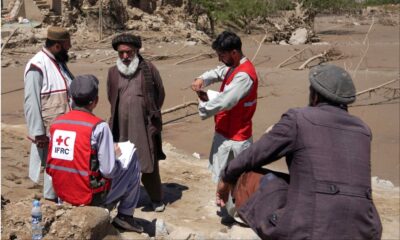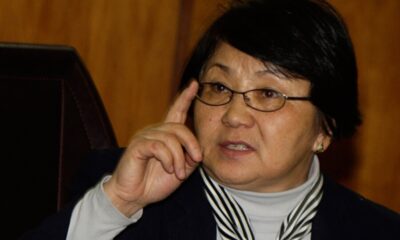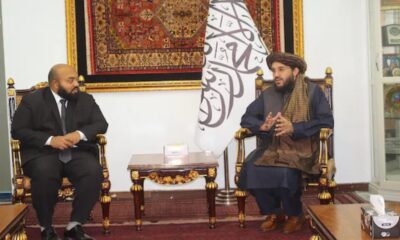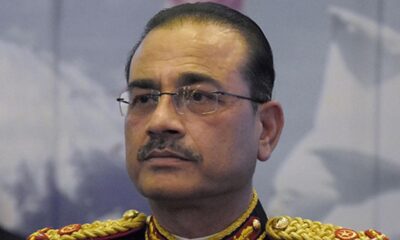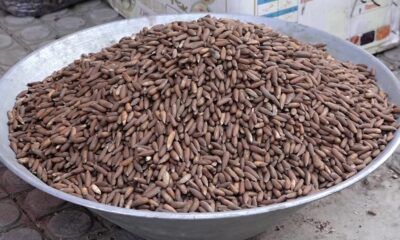Latest News
UN split over ban on IEA officials’ travel

Members of the United Nations Security Council remained divided Monday over whether to exempt some of the Islamic Emirate of Afghanistan's (IEA) officials from a travel ban, diplomatic sources said.
Under a 2011 Security Council resolution, 135 IEA leaders are subject to a sanctions regime that includes asset freezes and travel bans.
Thirteen of them benefited from an exemption from the travel ban, renewed regularly, to allow them to meet officials from other countries abroad, AFP reported.
But this exemption ended last Friday, after Ireland objected to its automatic renewal for another month.
In June, the Sanctions Committee in charge of Afghanistan, comprised of the Security Council's 15 members, had already removed from the exemptions list two IEA ministers responsible for education, in retaliation for the drastic reduction in the rights of women and girls, AfP reported.
Several Western countries would like to further reduce the list, according to diplomatic sources.
China and Russia, however, supported a regular extension of exemptions list.
"These exemptions are still just as necessary," the Chinese presidency of the Security Council said last week, deeming it "counterproductive" to link human rights to travel issues for IEA officials.
Since last week, and again Monday, several compromise proposals that would more or less shrink the list of officials concerned, or the number of authorized destinations, have been rejected on both sides, according to diplomatic sources.
Discussions are expected to continue.
Pending a possible decision, none of the IEA officials on the sanctions list can travel, AFP reported.
That was of particular concern to the IEA’s foreign minister, Amir Khan Muttaqi, who has visited Qatar several times in recent months for diplomatic discussions and who was among the 13 exemptions.
In a statement posted Saturday on Twitter, a foreign ministry spokesman called on the Security Council "not to use sanctions as pressure tool" and said all sanctions against IEA officials should be lifted.
"If the travel ban is extended, it will create distance instead of promoting dialogue & engagement, an outcome that must be prevented," the spokesman said.
Latest News
IFRC reports over half of Afghanistan’s population needs urgent humanitarian aid
Afghanistan ranks among the most vulnerable countries globally to climate change and disaster risks
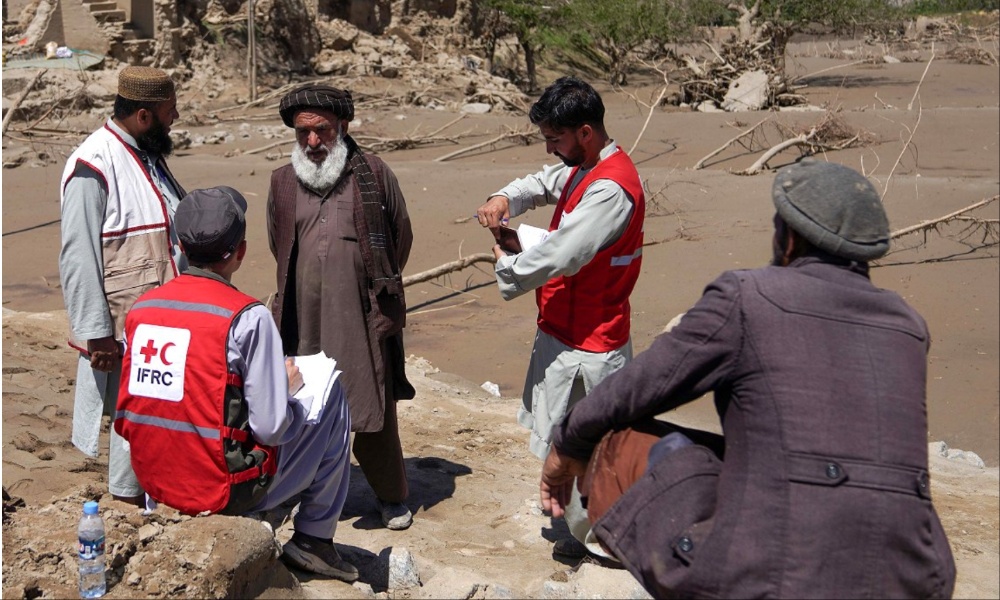
The International Federation of Red Crescent (IFRC) has reported that Afghanistan continues to face prolonged and complex humanitarian crises.
IFRC said in a report published on Tuesday, that about 23.7 million people, more than half of Afghanistan’s population, are in urgent need of humanitarian aid.
According to the IFRC, natural disasters, the growing impact of climate change, population displacement, economic challenges, and food insecurity are the main factors contributing to Afghanistan’s ongoing humanitarian crisis.
Afghanistan ranks among the most vulnerable countries globally to climate change and disaster risks.
The country is also prone to earthquakes, with nearly 400 tremors recorded in the last three years, including significant quakes, such as the 6.3 magnitude in Herat Province in October last year.
The compounding effects of disasters in the country have exacerbated the already fragile situation in Afghanistan, the IFRC’s report read.
These successive disasters have pushed more Afghans into poverty and heightened their vulnerability.
In addition, Afghanistan’s economic crisis is widespread, with more than half of households experiencing an economic shock.
The country’s economy is heavily dependent on foreign aid and remittances, which have declined significantly since the political change in 2021.
This has resulted in high levels of unemployment, challenging people’s coping mechanisms and thwarting the already fragile economy’s ability to adapt to shocks, the report read.
The IFRC said more than 85 percent of the country’s population is now living below the poverty line.
Latest News
Maldives recalls envoy to Pakistan over meeting with Afghanistan envoy
The island nation’s foreign ministry said the much publicized meeting had not been sanctioned by the government
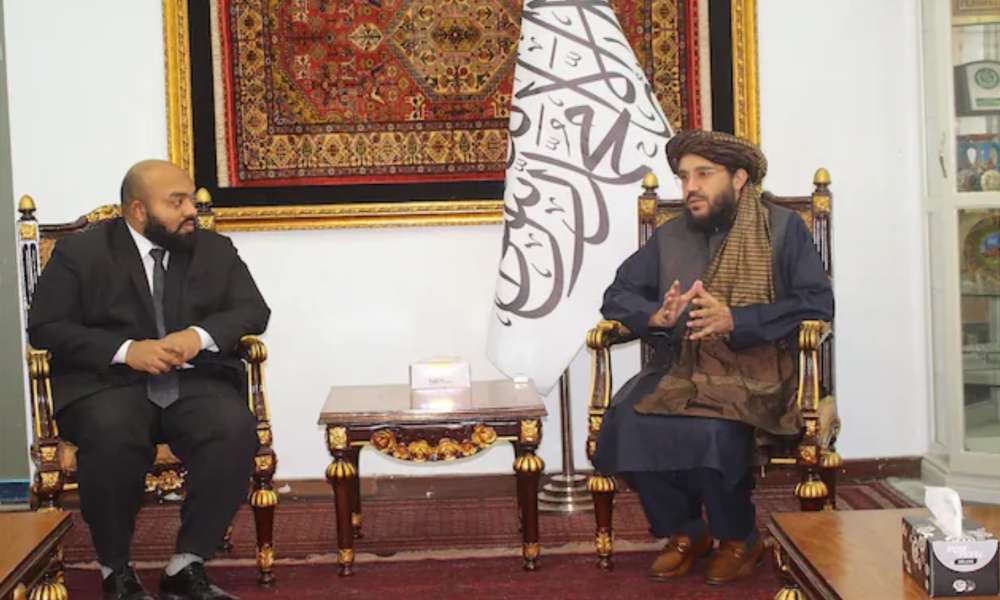
The Maldives government has recalled its top diplomat in Pakistan after he had an unauthorized meeting with an Islamic Emirate of Afghanistan envoy in Islamabad.
The island nation’s foreign ministry said the much publicized meeting between the Maldives High Commissioner Mohamed Thoha and IEA envoy Sardar Ahmad Shakeeb on Friday had not been sanctioned by the government.
Maldives media reported that the foreign ministry stated: “Consequently, appropriate action has been taken by the government of Maldives.”
Thoha’s name has also been removed from the website of the Maldives mission in Islamabad, and an official source told AFP that he had been recalled.
Since regained control of Afghanistan in August 2021, no country has yet officially recognized the government.
However, the IEA has been making inroads into the diplomatic arena and has official missions now stationed in a number of regional countries.
Latest News
Afghanistan exported more than 2,500 tons of pine nuts in 1402
Afghan pine nut is mostly exported to China, India, Turkey and the United Arab Emirates.
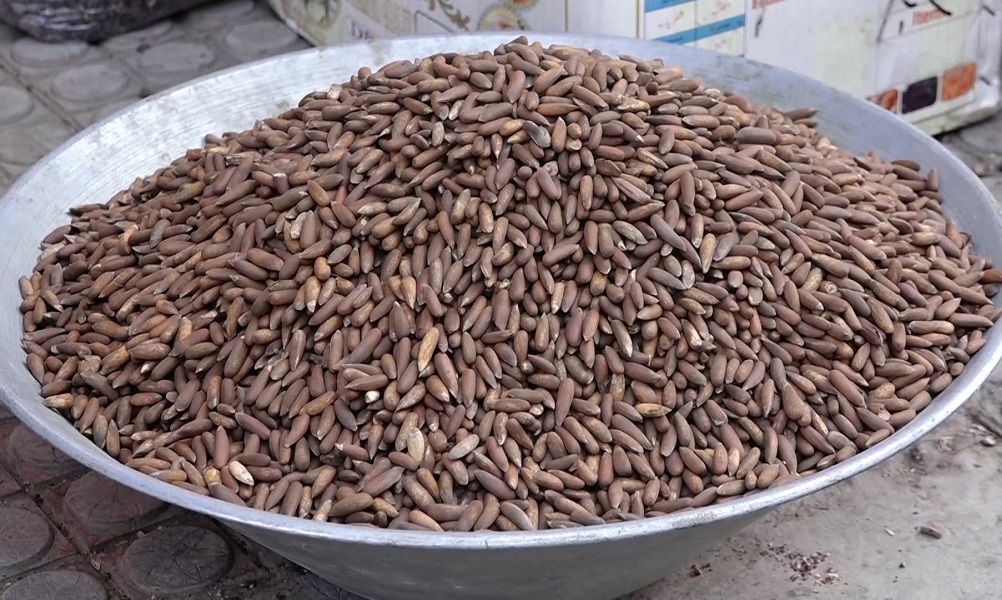
The Ministry of Industry and Commerce says that in the past solar year (1402) more than 2,500 tons of pine nuts worth $27 million were exported to neighboring countries and beyond.
Afghan pine nut is mostly exported to China, India, Turkey and the United Arab Emirates.
“The total weight of black pine nut exports during 1402 was 2,523 tons and the value was $27 million, mostly to China, India, Pakistan, the United Arab Emirates, Saudi Arabia, Qatar, the United States, Britain, Australia, the Netherlands, and other countries,” said Abdul Salam Javad Akhundzada, the spokesman of the Ministry of Industry and Commerce.
Officials in the Ministry of Agriculture, Irrigation and Livestock say that since last year, pine nut production has increased in the country and they have also expanded artificial forests to harvest more pine nuts.
“In order to revive pine nut forests, according to last year's development budget, pine trees have been planted on approximately 1,500 hectares of land.
There used to be pine trees on these lands, but they were cut down or destroyed in a fire,” said Misbahuddin Mustain, the spokesperson of the Ministries of Agriculture, Irrigation and Livestock.
Experts say that currently China buys most of Afghanistan's pint nuts, but the government must find new markets so that it can be sold at a better price.
-
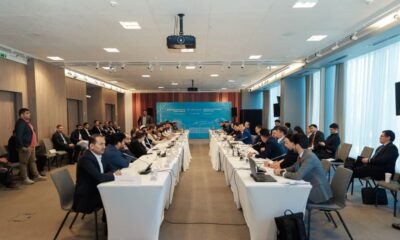
 Business4 days ago
Business4 days agoPrivate sectors of Afghanistan, Kazakhstan sign contracts worth $100 million
-
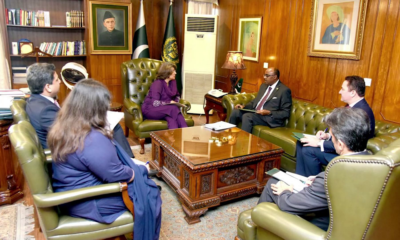
 Latest News5 days ago
Latest News5 days agoOIC special envoy meets with Pakistani officials for talks on Afghanistan
-

 Sport4 days ago
Sport4 days agoRashid Khan retained by Gujrat Titans ahead of IPL 2025 auction
-
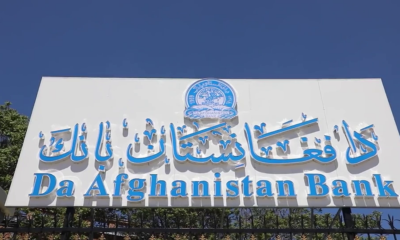
 Latest News4 days ago
Latest News4 days agoDAB plans to set up electronic payments in Afghanistan
-

 Regional4 days ago
Regional4 days agoIran preparing strike on Israel from Iraqi territory within days, Axios reports
-

 Regional4 days ago
Regional4 days agoSeven killed, dozens injured in blast in Pakistan’s Balochistan province
-

 Sport2 days ago
Sport2 days agoAfghanistan to tour Zimbabwe for all-format series
-
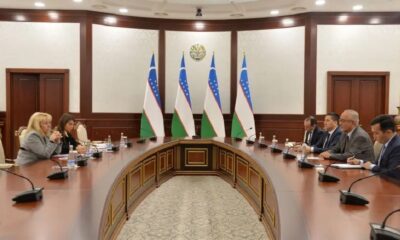
 Latest News3 days ago
Latest News3 days agoUzbekistan, EU envoys meet to discuss Afghanistan


